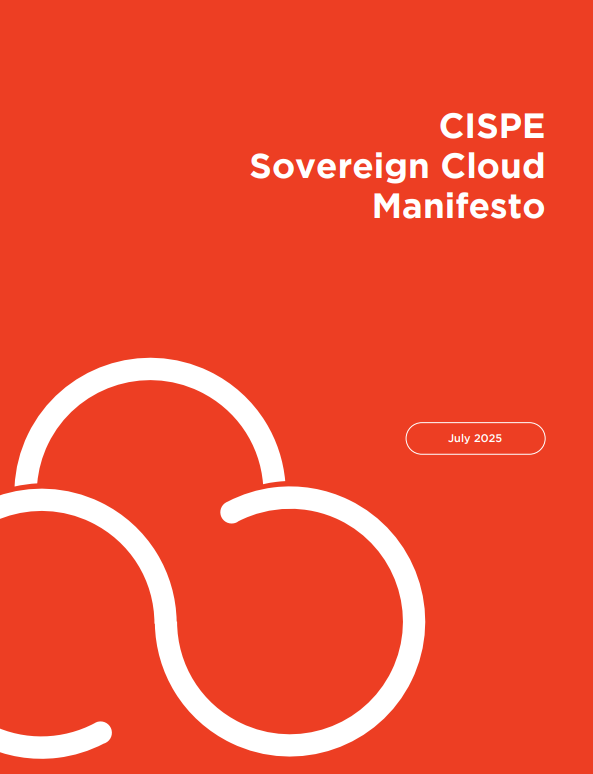digital sovereignty
The EU’s Digital Sovereignty
CISPE is committed to strengthening Europe’s digital sovereignty by promoting real, workable choices for European customers in the cloud market. In July 2025, we published our Sovereign Cloud Manifesto, a practical framework that sets out what is needed to ensure Europe can develop and maintain competitive, secure, and independent cloud infrastructure.
The manifesto identifies five core areas for action and outlines 20 concrete steps for industry players, policymakers, and other stakeholders. Its aim is to support a cloud environment in Europe where providers of all sizes can compete fairly, customers can choose based on their needs and values, and infrastructure remains under European control when necessary.
The approach is not about shutting others out or building protectionist barriers. Instead, it promotes a market-based model that avoids heavy-handed governance or failed central planning efforts. By building on the diversity and innovation already present in the European ecosystem, the manifesto charts a path toward sovereignty through choice, flexibility, and competition – on Europe’s own terms.
Overview of our main proposals to promote Europe’s Digital Sovereignty
- Reform EU Procurement Rules to Support European Cloud Provider for public spending to contribute to Europe’s digital sovereignty and strategic resilience.
- Promote Visibility and Recognition of Certified Sovereign Cloud Solutions to enhance the accessibility and trustworthiness of European cloud alternatives.
- Build Composable, Secure, and Fair European Cloud Ecosystems to foster competition, interoperability, and technological independence.
- Promote a Sustainable and Scalable Cloud Sector to align Europe’s cloud infrastructure growth with the EU Clean Industrial Deal.
- Use-it-or-Share-it: Ensure Fair and Strategic Allocation of Energy Resources to prevent energy-based exclusion and support the deployment of European cloud capacity.
Are you a European Cloud provider interested to join CISPE’s work on promoting Europe’s digital sovereignty?

